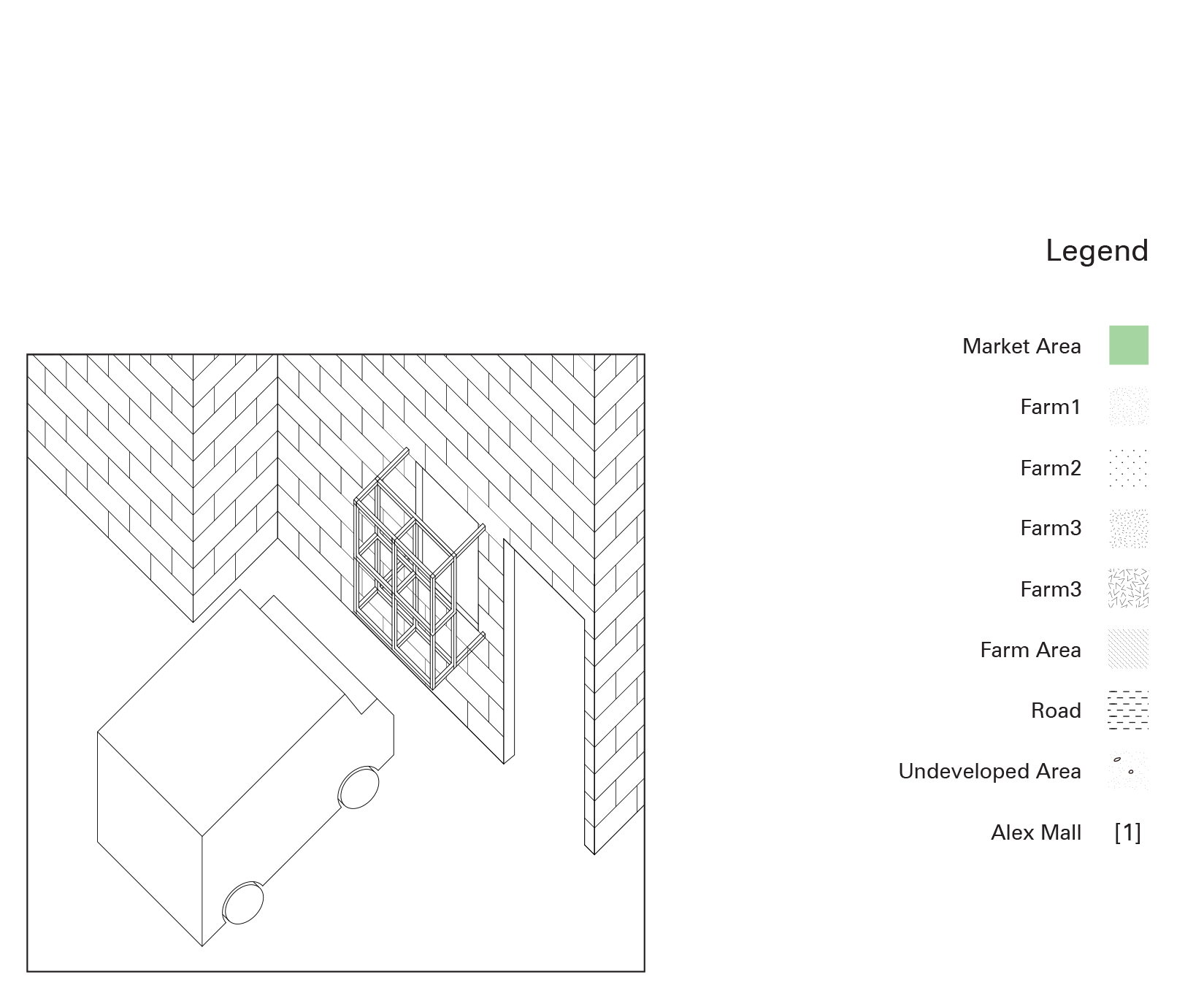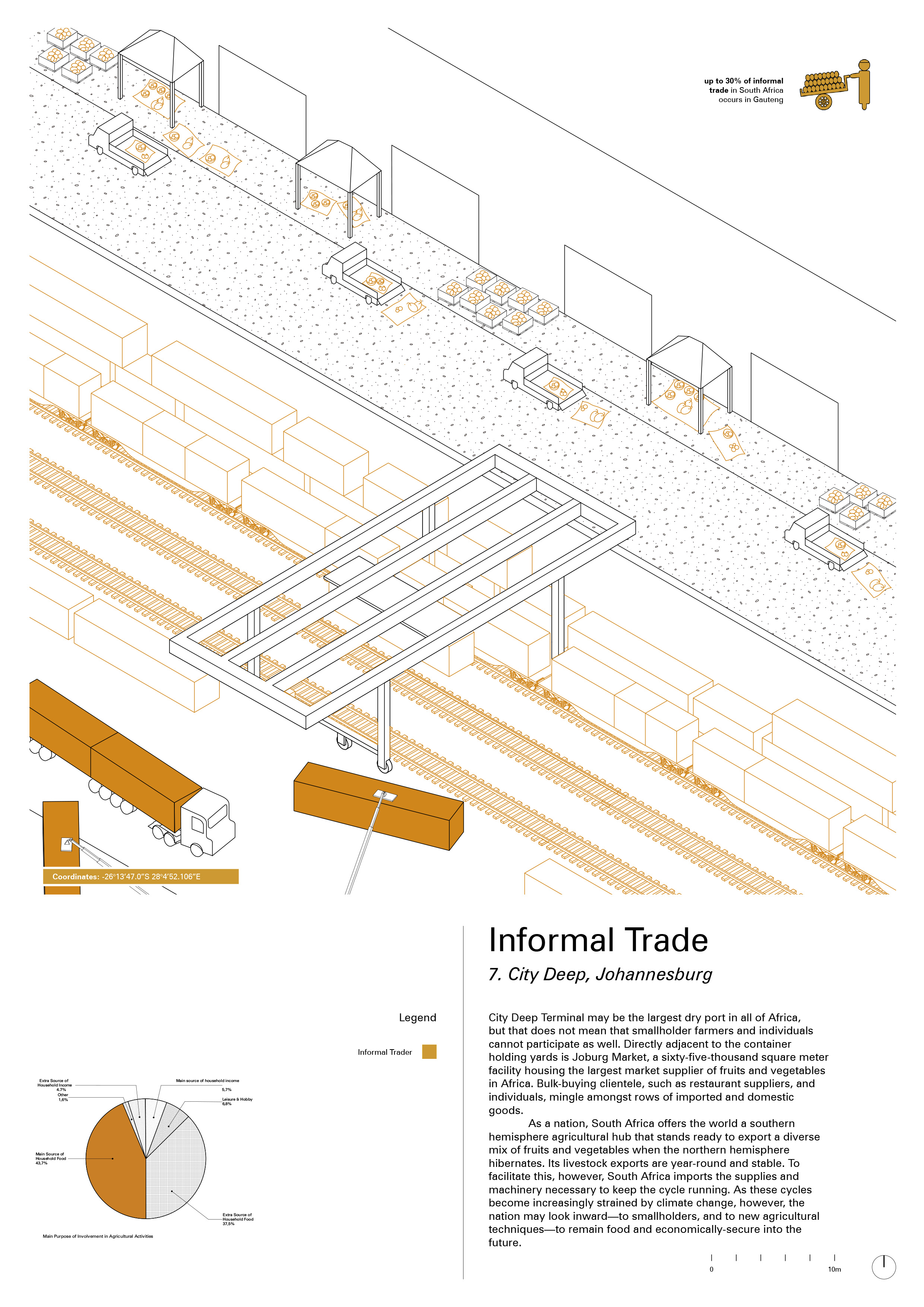Informal Urban Farmers Market
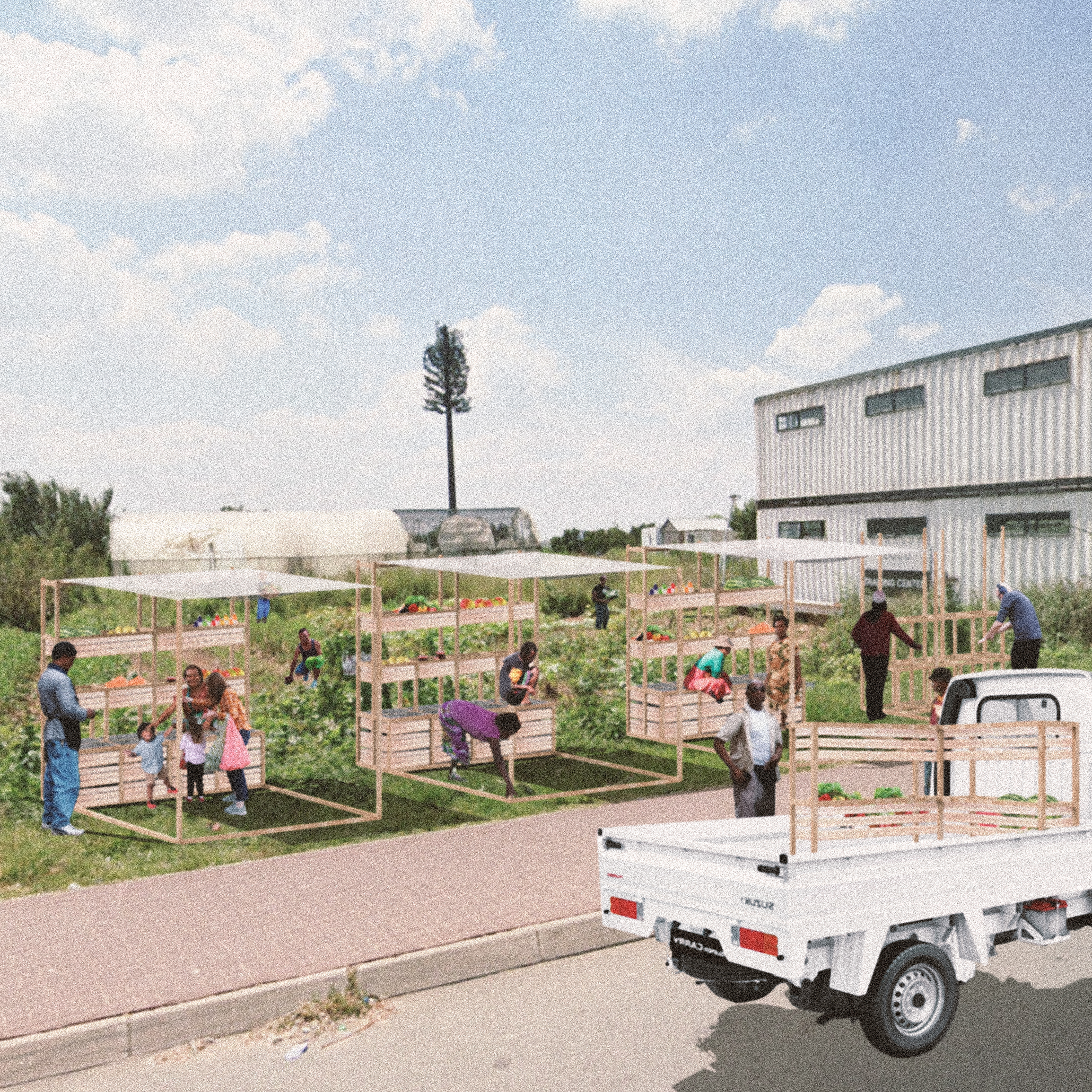
Informal Urban Farmers Market located in the city center provides affordable and accessible food for neighbors. Urban farmers can gain more economic benefits by reducing the supply chain. It is also environmentally beneficial because of the shorten transportation
distances.
Urban farmers are classified as informal workers and their markets are also informal and operate without accurate space and time definitions. The informal market proposed through the project is set up inside an urban farm in downtown Johannesburg and sells products grown by farmers directly within the space. Through a
more effective and productive supply chain, farmers can increase production and neighbors can easily purchase products.
Informal Urban Farmers Market is a modular structure that can be changed to suit the configuration of the farm. It is not only for display, but also storage and vertical farms.

Urban Farm
Johannesburg city center
Currently, there are 12 urban farms in Johannesburg and the number of it is on the rise. However, most of them are small and commercial farms. The three urban farms in the heart of Johannesburg, covered in this contribution, are based on communities with neighbors. Farmers, which started with the goal of supplying food materials to nearby residents, are gradually growing in size, and are increasing productivity by creating websites that deliver to nearby marts and sellproducts directly. The three farms are located adjacent to residential areas and are operated with the participation of neighbors.
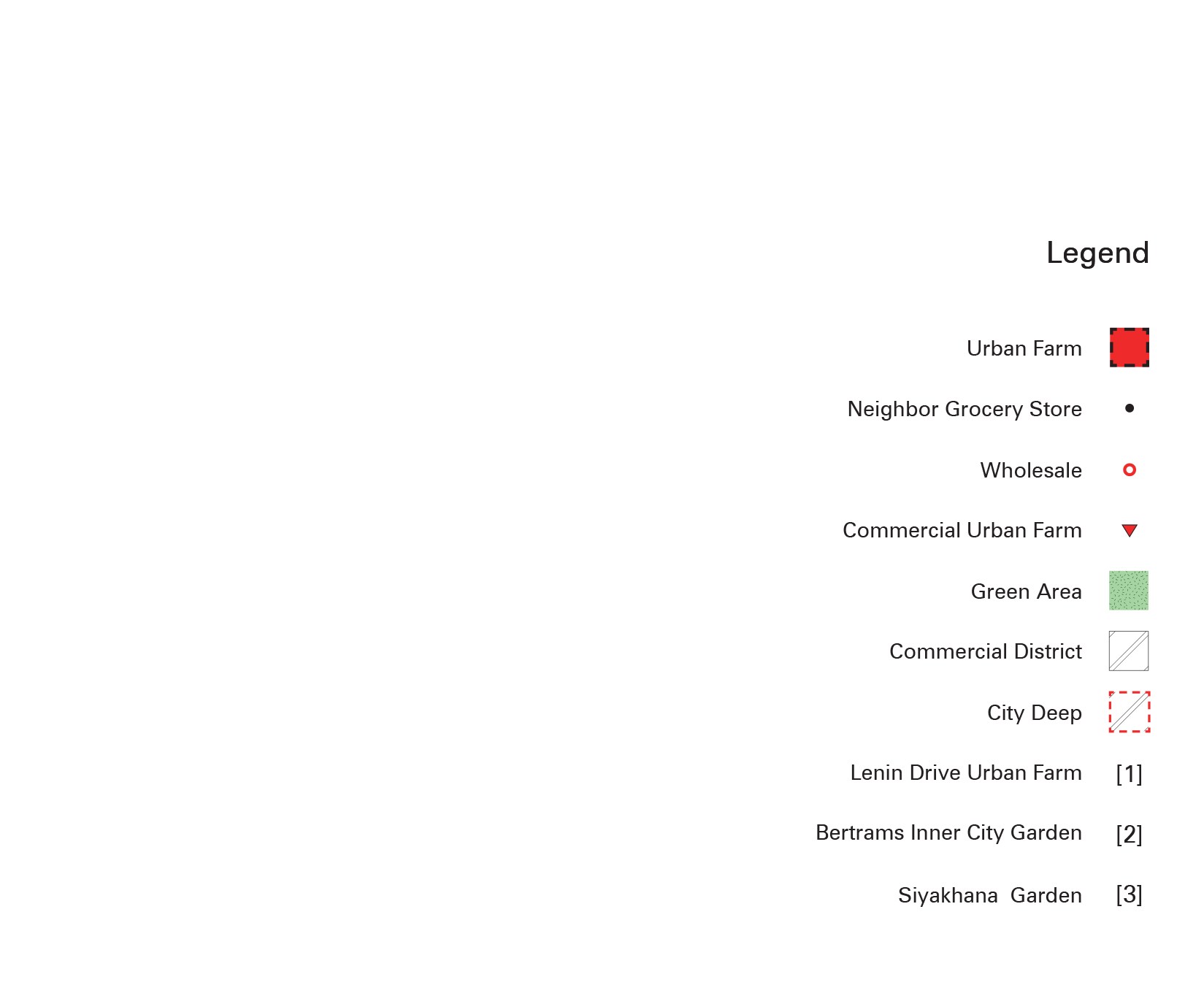
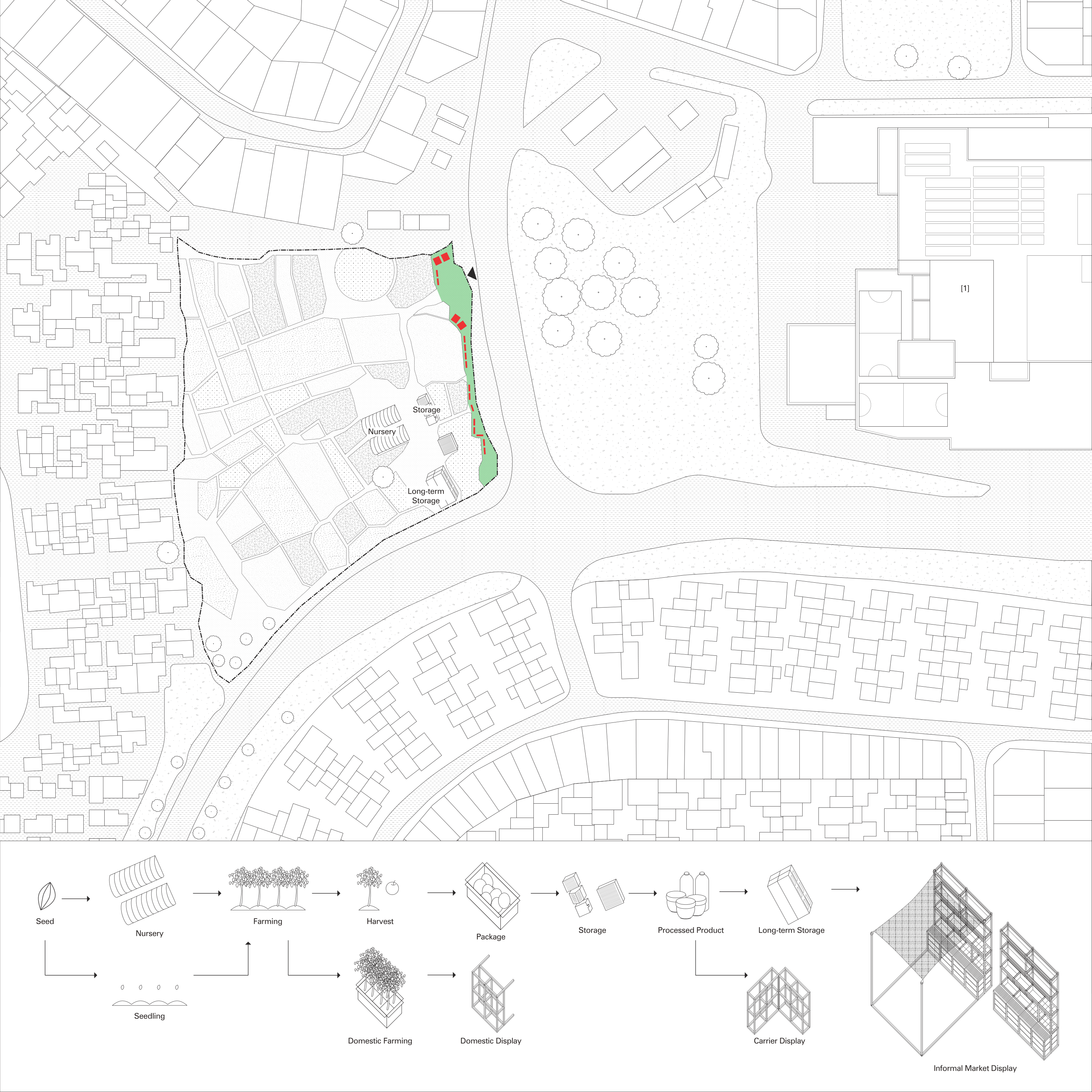
Lenin Drive Urban Farm
Lenin Dr & London Rd, Alexandra
Lenin Drive Urban Farm started farming to provide vegetables and fruits to children near the residential complex. Next to the urban farm is a large modern mall called Alex Mall. There are two grocery stores inisde of the mall.
The farm is located in a four-lane road corner. Inside the farm, there is a greenhouse for seedlings, a barn, and a container for storage. A linear market is installed next to the driveway that connects to the farming process using buildings inside the farm facing the road. The internal farms are not standardized, and different fruits and vegetables are grown in farms of various sizes.Currently, farms sell secondary processed foods such as jam, tea, and juice. Most of the surrounding housing complexes are single-story or two-story houses that share walls with the next house without a yard and parking space.
